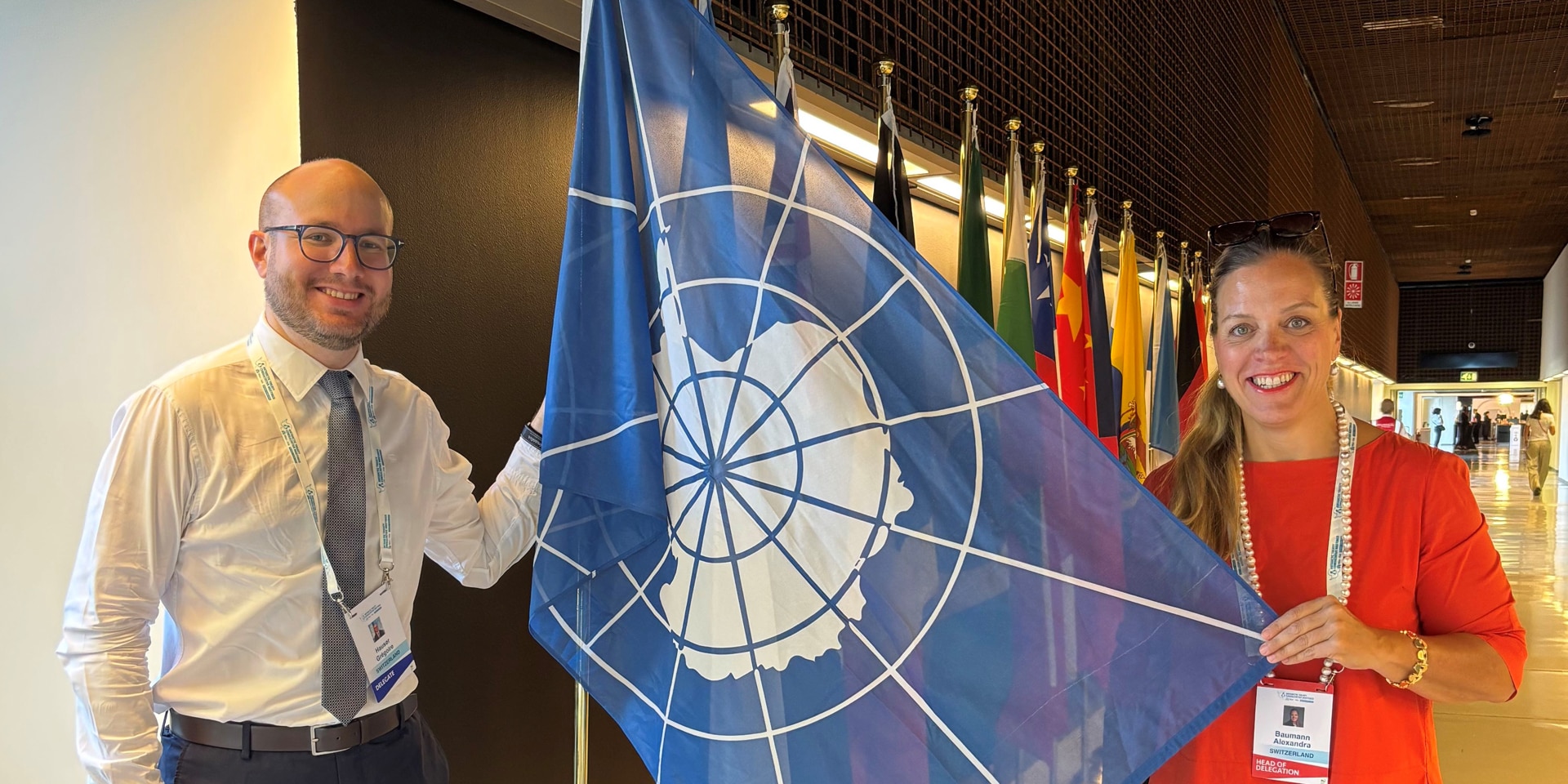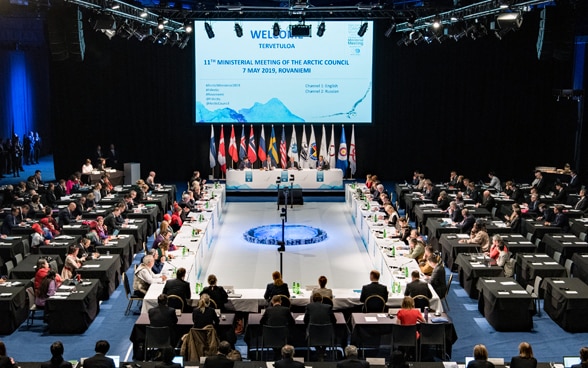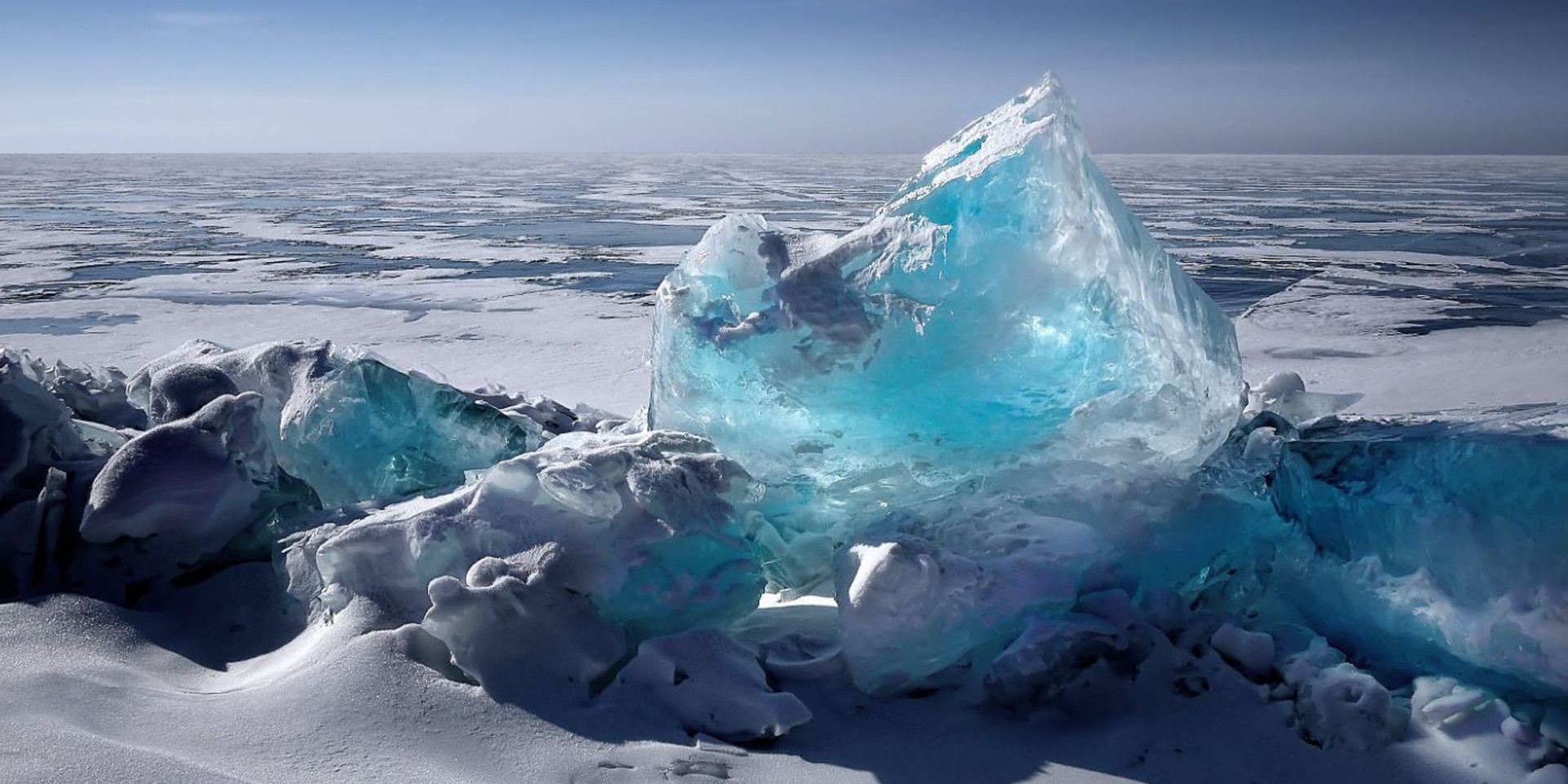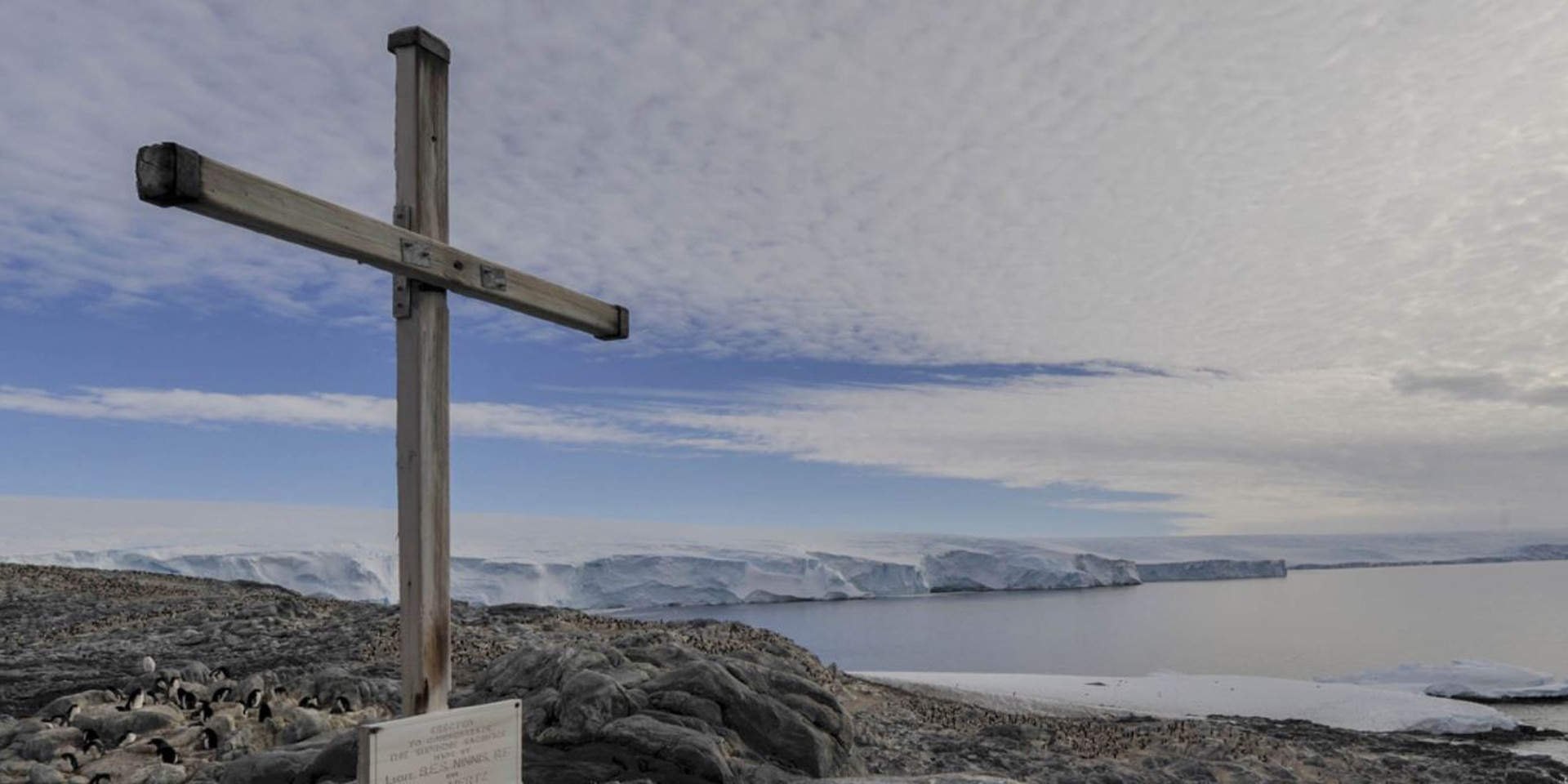"What happens in the Arctic doesn't stay in the Arctic"
In the Arctic, the effects of global warming are particularly severe. While Indigenous peoples and local communities are under pressure due to the melting of polar ice, the region is gaining economic and geopolitical importance for other countries. In its role as observer on the Arctic Council, Switzerland uses its expertise to promote peaceful and sustainable development within the polar region. Alexandra Baumann, head of the Prosperity and Sustainability Division of the FDFA and responsible for polar issues shares her views in this interview.

"Switzerland has a history of polar and climate research in the Polar regions," says Alexandra Baumann, head of the FDFA's Prosperity and Sustainability Division. © FDFA
Ms Baumann, why is the Arctic so important in the global context?
They often say that what happens in the Arctic doesn't stay in the Arctic and I agree. The High North is in turmoil, and the implications extend far beyond the Arctic Circle. Polar ice is melting fast, translating into rising sea levels first and foremost. But the principle applies both ways. Global phenomena like climate change and environmental pollution are, in turn, having a profound effect on the Arctic. As sea routes gradually open and resources become easier to access, there is increased external interest in the region, not least among the major powers. The Arctic is no longer just a remote area at the top of the world, but is now firmly intertwined in the global geopolitical and economic dynamic. In my view, this makes effective multilateral governance based on international law all the more necessary.
What are Switzerland's objectives in the Arctic?
Switzerland has a history of polar and climate research in the Arctic. What happens there also affects us. The retreat of the Arctic ice reminds us of events in the Alps, where the recent collapse of the Birch glacier devastated the village of Blatten. In northern latitudes and at high altitudes, the effects of climate change are equally dramatic.
As an observer on the Arctic Council since 2017, we aim to promote the sustainable and peaceful development of this region. We believe that scientific knowledge should inform political decision-making. But our involvement also focuses on good governance and international cooperation.
Switzerland has observer status in the Arctic Council. How can it exert influence as an observer?
As an observer state, Switzerland is not involved in any decision-making but has privileged access to the discussions and work of the Arctic Council bodies. This status allows us to keep close track of what is happening in the region. For example, I recently took part in the meeting to mark the handover of the Arctic Council chair from Norway to Denmark, at which all the Arctic coastal states had their say.
Our influence relies above all on the quality of our input. Swiss scientists play an active role in a number of Arctic Council working groups, where they bring their acclaimed expertise to bear. Furthermore, Switzerland stands out for its ability to connect different parties and for its unyielding commitment to multilateralism and inclusive cooperation. This constructive approach helps us to have an impact, even as an observer state.

What are the particular challenges with regard to international cooperation in the Arctic?
There are a number of major challenges. Most obvious perhaps, are the geopolitical tensions that have disrupted multilateral dialogue and international scientific cooperation. When the war began in Ukraine, the Arctic Council was thrown into a state of paralysis. Even though the working groups have now resumed their activities, the situation remains fragile. Furthermore, climate change is transforming the region in profound ways. We need a collective response, but coordination between the different actors continues to be a problem. This is why science diplomacy and international cooperation have taken on particular importance. Finally, the involvement of Indigenous peoples in decision-making processes is another challenge that must be considered. – which, incidentally, the current chair of the Arctic Council, Denmark, has clearly defined as a priority.
The Arctic Council
Established in 1996, the Arctic Council is an intergovernmental forum aimed at balancing the interests of the Arctic states and the Arctic's indigenous peoples.
In addition to the five Arctic coastal states (Canada, Denmark, Norway, Russia and the US), permanent members of the Council include Iceland, Sweden and Finland as well as organisations representing indigenous peoples. Denmark is serving as the Council chair from 2025 to 2027. Thirteen states – including Switzerland – and various international organisations have observer status in the Council.
The Arctic Council promotes and coordinates cooperation and interaction among the Arctic states, indigenous peoples and local communities with regard to sustainable development and climate action within the region. It also has working groups dealing with environmental protection, the preservation of biodiversity, sustainable development, health protection, social and cultural issues, and climate protection.



